JAWS® 7MM POWER KNEE SLEEVES (PAIR)
£49.99 Original price was: £49.99.£34.99Current price is: £34.99.
Patented JAWS® design powerlifting-specific knee sleeves with “rebound” technology.
- Supplied as a pair.
- Patented JAWS® Design for increased “Rebound-effect”.
- Features additional MCL and LCL support.
- Maximum allowed 30cm height.
- Maximum allowed 7mm thickness.
- Contoured for fit/ comfort.
- High-Grade Neoprene.
- Reinforced seam construction.
- Extremely high-quality.
- Premium finish.
- BPU and WPC Approved.
Add weight to your squat, and enjoy confidence in other lifts, with the JAWS® 7MM POWER KNEE SLEEVES.
- Your satisfaction is 100% guaranteed.
- Free Shipping, Quality Goods
- Your needs, our top priority.
- Product guarantee 100% satisfaction

The patented JAWS-design creates extra-stiffness of the sleeve around the LCL and MCL regions (sides) of the knee; in turn, this also causes the overall sleeve to be stiffer, thus increasing its “rebound” properties in the squat exercise. By reducing the elasticity of the sleeve, the fit is intentionally tight, and the sleeve regarded as “stiff” in feel, particularly during movement (knee flexion), compared to a general sports support. The JAWS technology is purposeful to aid maximum support/ assistance in the powerlifting squat exercise. The sleeve is also produced in the maximum competition height of 30cm. The conotour design of the JAWS sleeve also makes it the ideal aid during other exercises. The knee sleeve is not intended for use for a prolonged duration, or, as a general knee support – it is designed for heavy-duty leg workouts, and max effort squats.
- Supplied as a pair.
- Patented JAWS® Design for increased “Rebound-effect”.
- Features additional LCL and MCL support.
- Maximum allowed 30cm height.
- Maximum allowed 7mm thickness.
- Contoured for fit/ comfort.
- High-Grade Neoprene.
- Reinforced seam construction.
- Extremely high-quality.
- Premium finish.
- BPU and WPC Approved.
SIZE GUIDE:
| MEASURING | SIZE | CM |
| Keep the knee slightly bent (circa 30 degrees) and measure circumference 10cm below the patella. | XXS XS S M L XL XXL | 29-31 31-33 33-35 35-37 37-40 40-43 43-46 |
SIZING NOTE: We find the sizes to be quite true. If you say wear medium joggers, you will likely be a medium in the knee sleeves. Please remember that the sleeves are intentionally tight (“stiff”). We do not recommend ordering smaller for a tighter fit or larger for a comfort fit – we recommend ordering your correct size.
Knee Sleeve FAQ’s answered by Gym Professor:
Matt, AKA Gym Professor (gymprofessor.com), gives us 10-minutes to answer some commonly asked questions regarding knee sleeves. Here’s what Matt had to say in response:
What does wearing a knee sleeve do?
If we look at strength sports and strength training in isolation, I’m less sold on the reported compression benefits of decreased pain and reduced inflammation, and more the benefits that it’ll warm your knee and offer support. With this, I feel comes greater confidence, also. The thicker the sleeve, the warmer. The thicker, tighter, and/ or stiffer the sleeve, the greater support/ “assistance”. I say “assistance”, because it is common for powerlifters to wear deliberately tight sleeves in a RAW competition setting for a greater “assist” in a competitive lift. Enter the JAWS sleeve, which is produced within the allowed parameters, but highly likely will “assist” a competition squat.
Is it good to wear knee sleeves?
I was brought up in a training environment where I used no additional aids, else “you will not adequately bring up your weak links” I was told. It’s difficult for me to get out of that mindset, even with small hands being my first limiting factor on my deadlift, so I trained grip. Reported sleeve benefits aside, and mindful of my training nostalgia, I think it’s a bad idea to become reliant on any training aid, else it’s difficult to step foot in the gym, if you haven’t had the right pre-workout, have the right shoe, or are without your trusted sleeves; however, let’s say you are pushing your squat limits, would it be prudent to pop on a belt and some decent knee sleeves? Yes, probably. I just wouldn’t wish to become wholly reliant on the mindset of not being able to perform a half-decent squat without their assistance.
When should you wear a knee sleeve?
If you are pushing your limits, there’s a sensible argument to use sleeves. If you are in a competitive environment and using knee sleeves is the norm, and you’ll be at a disadvantage by not using them, compared to others, it makes sense to use knee sleeves, also. While I like the use of exercise variations in most circumstance of injury/ discomfort avoidance/ rehab, it’s easier said than done for many circumstances and conditions, particularly degenerative ones. A knee sleeve can be a very sensible choice, in the right circumstance. I do not advocate using supports/ aids in general training to unduly mask an injury – many will be guilty of this in their training. Often, the advice you’d offer someone else “have a couple of weeks off! Avoid anything that aggravates it!”, is the same advice that you should take yourself.
Do knee sleeves get rid of knee pain?
Can compression and support of a painful joint reduce pain and improve stability of said joint? In many situations, yes; however, as already touched upon in the last question, do not allow wearing a knee sleeve make you do something you know you shouldn’t or become overconfident in training in a manner which is currently beyond you. Treat the condition, don’t mask it!
Is it OK to wear a knee compression sleeve all day?
As we are talking about knee sleeves specifically relating to strength endeavours, the answer is “no”, in this field. We are talking about knee sleeves such as JAWS sleeves designed to improve squat performance. They are intentionally stiff for a heavy squat, not designed to keep on longer than is necessary for the lift itself. Braces and supports enter a different arena and you are best advised on their usage by your practitioner who is familiar with your condition/ circumstance.
Are tight knee sleeves better than loose?
For general training, I’d always go for a comfortable fit – one that feels “snug”. A loose fit will not be doing the job that it is designed to do and may also move in use. A tight fit is often preferred when using the knee sleeve as an “assist” for a competitive lift, as outlined in previous answers. You should be mindful of your blood circulation with a tight fit though, which is why they are recommended for the lift alone.
How do I know what size knee sleeve to get?
Most manufacturers offer a guide to measure for the right size knee sleeve. There are a few different ways different manufacturers measure, and manufacturers sizing can vary; but you have to consider that they don’t want a return, so they do their best to match you correctly; so, it is largely down to you to make sure that you take your measurement correctly. If you do, you should get the right size sleeve.
Are knee wraps or sleeves better?
Knee wraps do not fall under the ‘RAW’ squat category, but the ‘Equipped’ category. Can knee wraps be used to offer a greater “assist” than a knee sleeve? Yes. Knee wraps can be wrapped tighter and thicker, thus creating more of a “brace” for the knee joint. Is this better? This is too broad a question, as there’s far too many variables. If your goal is to simply lift more, yes. In most other circumstances – warm your knee/s, offer some support, wear for a RAW squat, etc. – knee sleeves are the best answer.
Are there downsides to knee sleeves?
As mentioned previously, I do not like an overreliance on any training aid. If you always squat with knee sleeves, do you feel confident to lift without knee sleeves? And how will your knee react/ cope, by not using what you’ve always used? If you always wear knee sleeves to squat and forget them one day, I recommend skipping leg day or lifting less weight.
What thickness knee sleeve should I buy? Are 3mm, 5mm, or 7mm knee sleeves better?
A thicker sleeve will be warmer and highly likely offer greater support. If it’s for competitive use, take full-advantage and go for maximum thickness and height, 7mm and 30cm respectively. If it’s for general training, the choice is yours, depending on your preference. If it’s summertime and you just want a little extra confidence in the squat, why not a 3mm or a 5mm?
Why are knee sleeves hard to put on?
How are you putting them on? Simply changing your technique can often make putting your sleeves on much easier. If you’re buying intentionally tight-fitting sleeves, you need to factor they’ll be more difficult to put on, also.
How do I keep my knee sleeve from rolling down?
Relating to the JAWS sleeves specifically, the contour fit seems to stop this from happening altogether, as well as having the added benefit of less gathering of material at the back of the knee joint at the bottom of the squat. If your sleeves are rolling down excessively, this could be down to the type of sleeve, quality of sleeve, and the fit/ how you’re wearing the sleeve. If you have loose-fitting straight-leg sleeves, and are a hot sweaty mess in the gym, there’s your answer.
| Custom Stock Status | In stock. Usually ships in 1 – 2 business days. |
|---|
Be the first to review “JAWS® 7MM POWER KNEE SLEEVES (PAIR)” Cancel reply
Related products
GYM EQUIPMENT
GYM EQUIPMENT
ACCESSORIES
GYM EQUIPMENT
GYM EQUIPMENT
GYM EQUIPMENT
ACCESSORIES

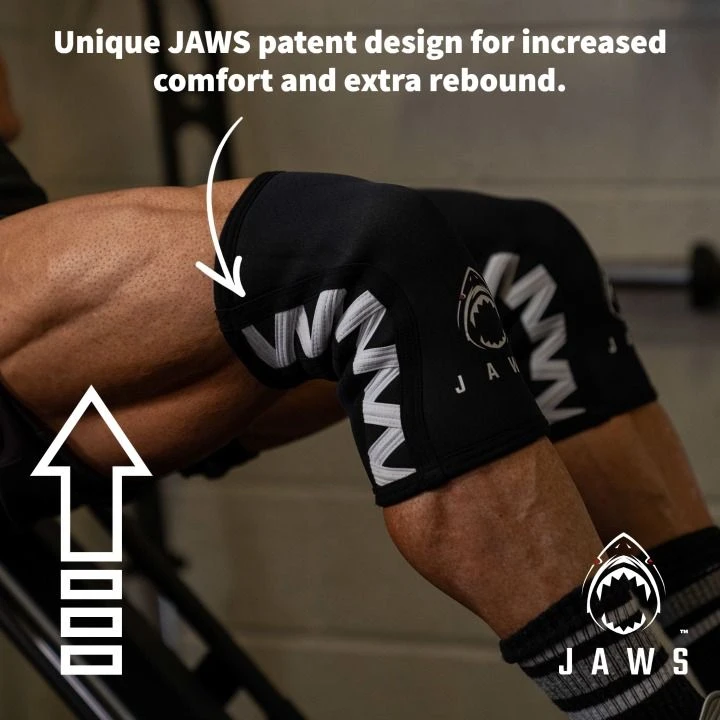
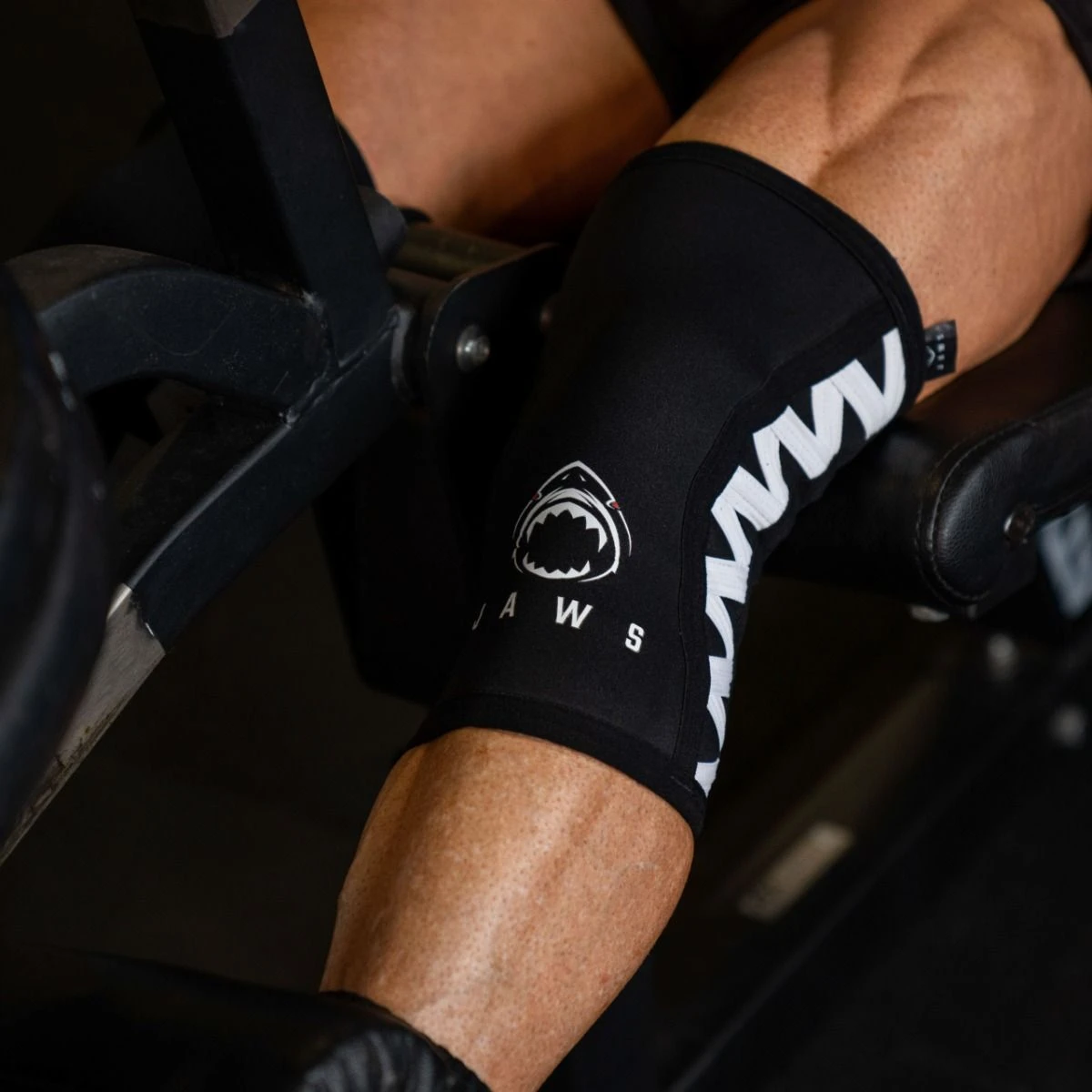
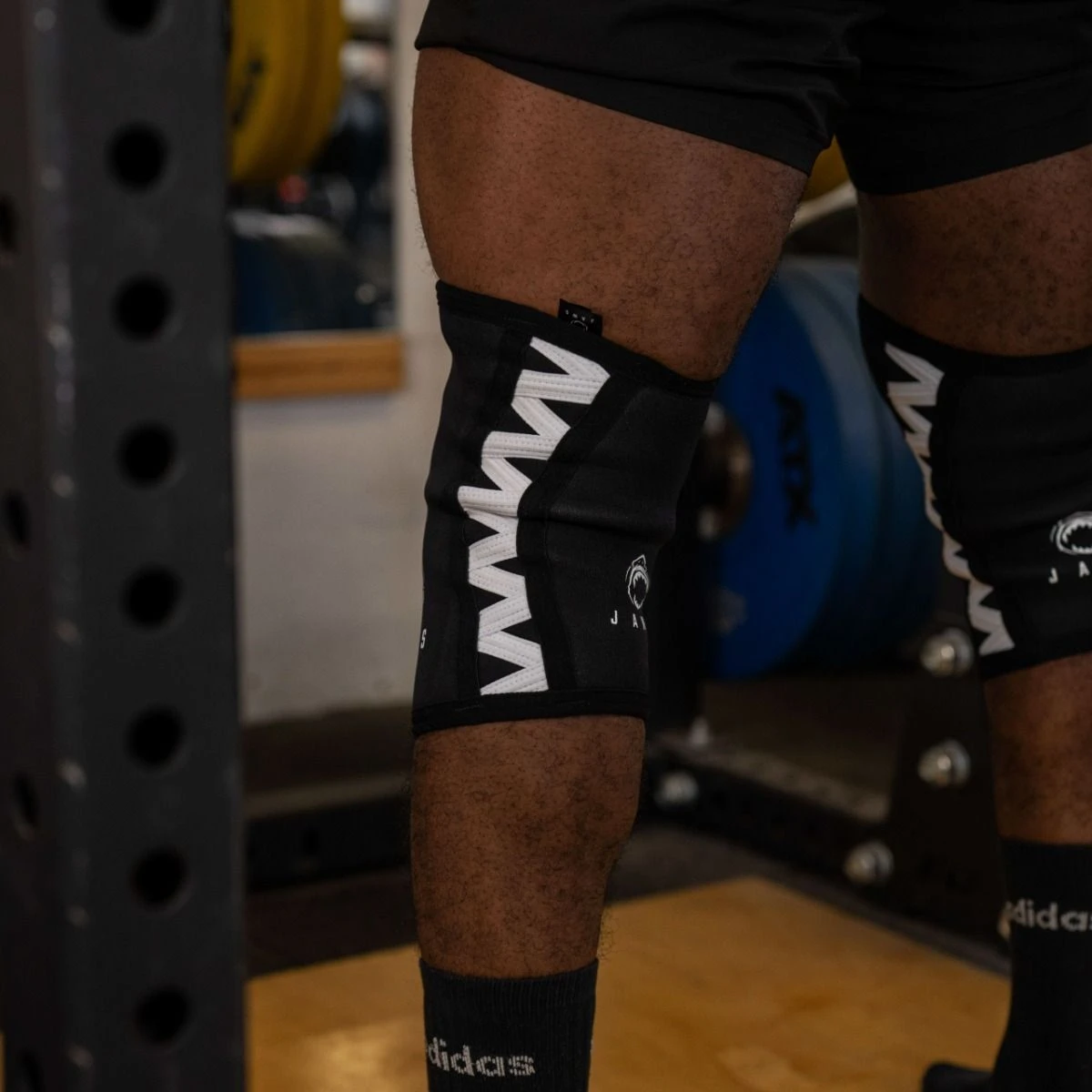
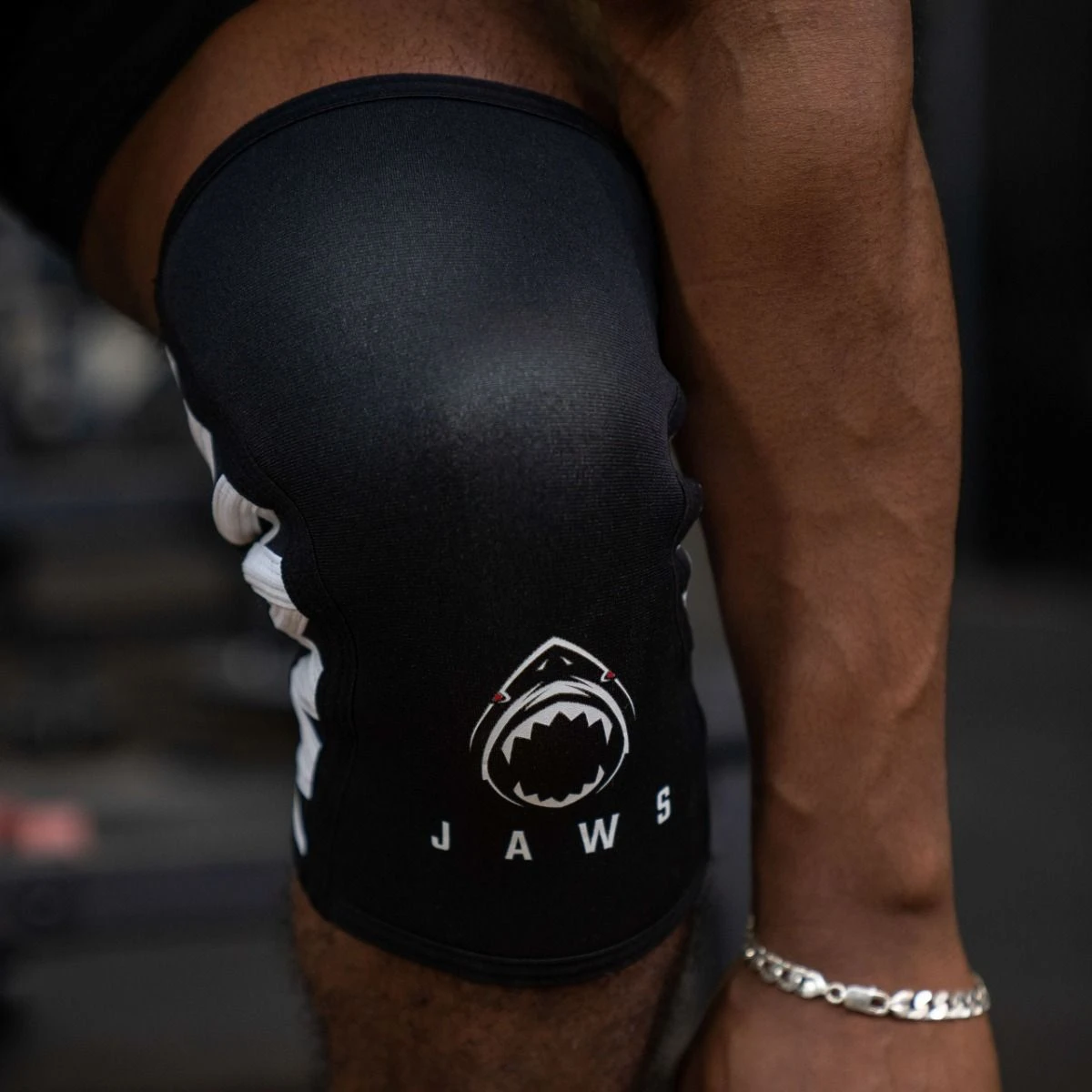
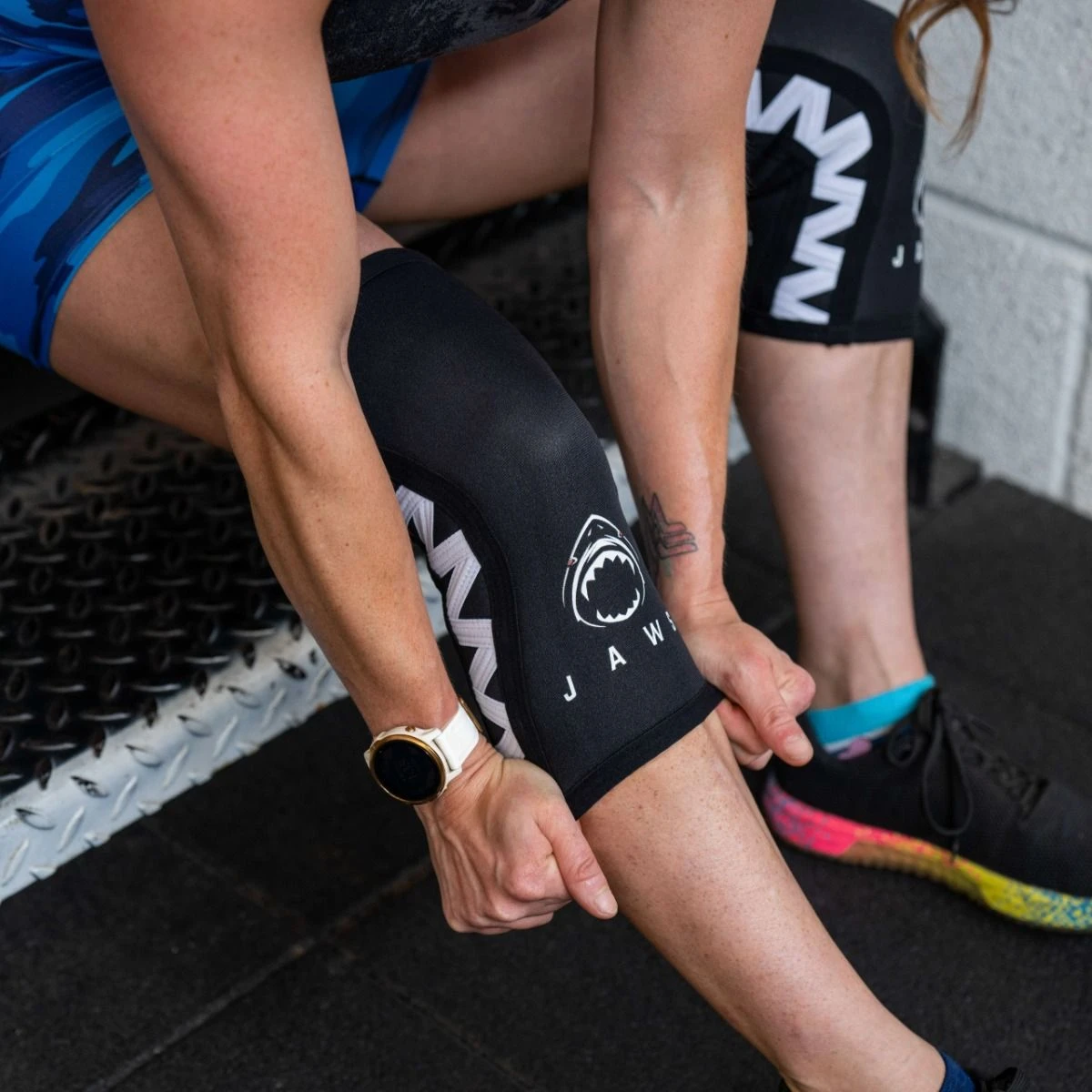
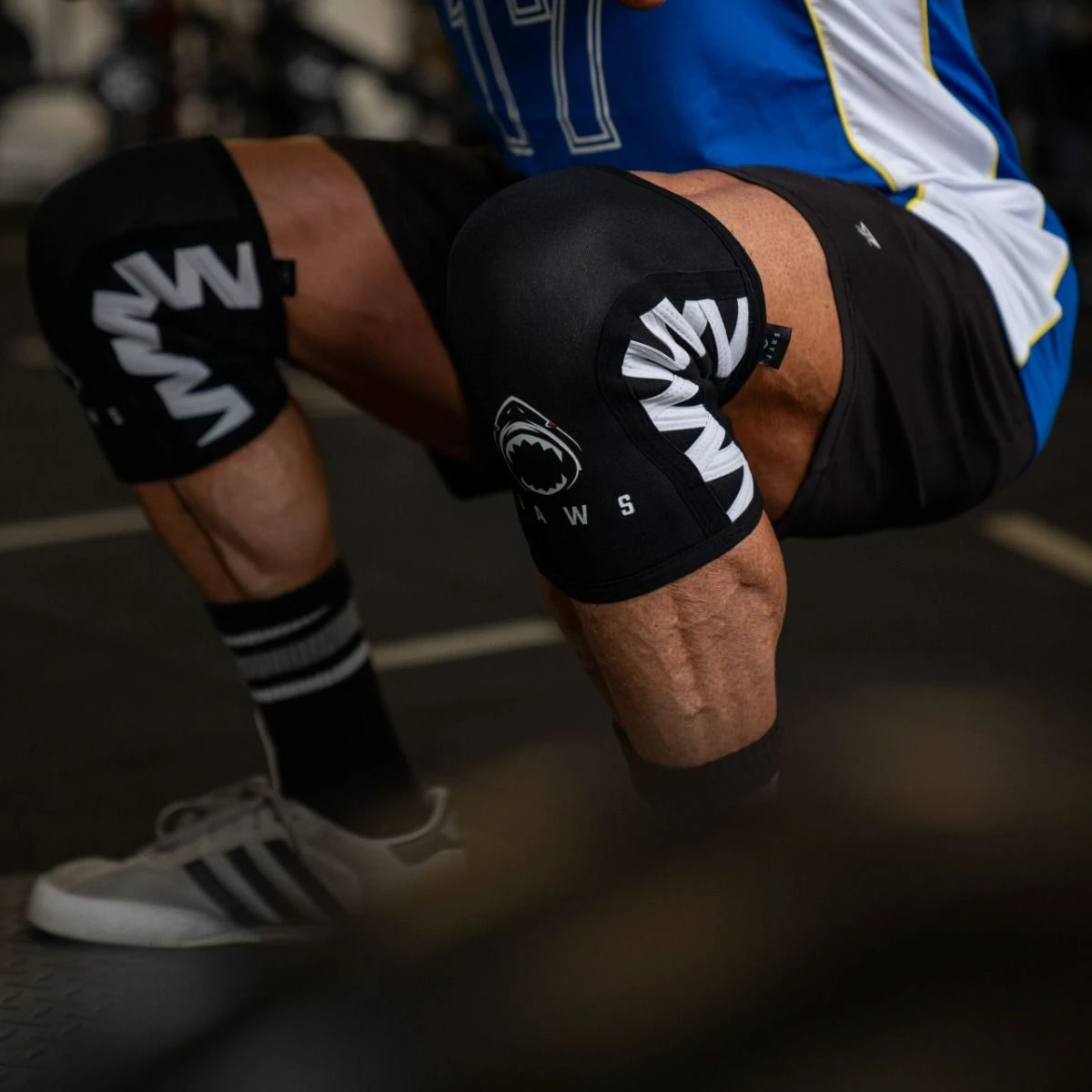
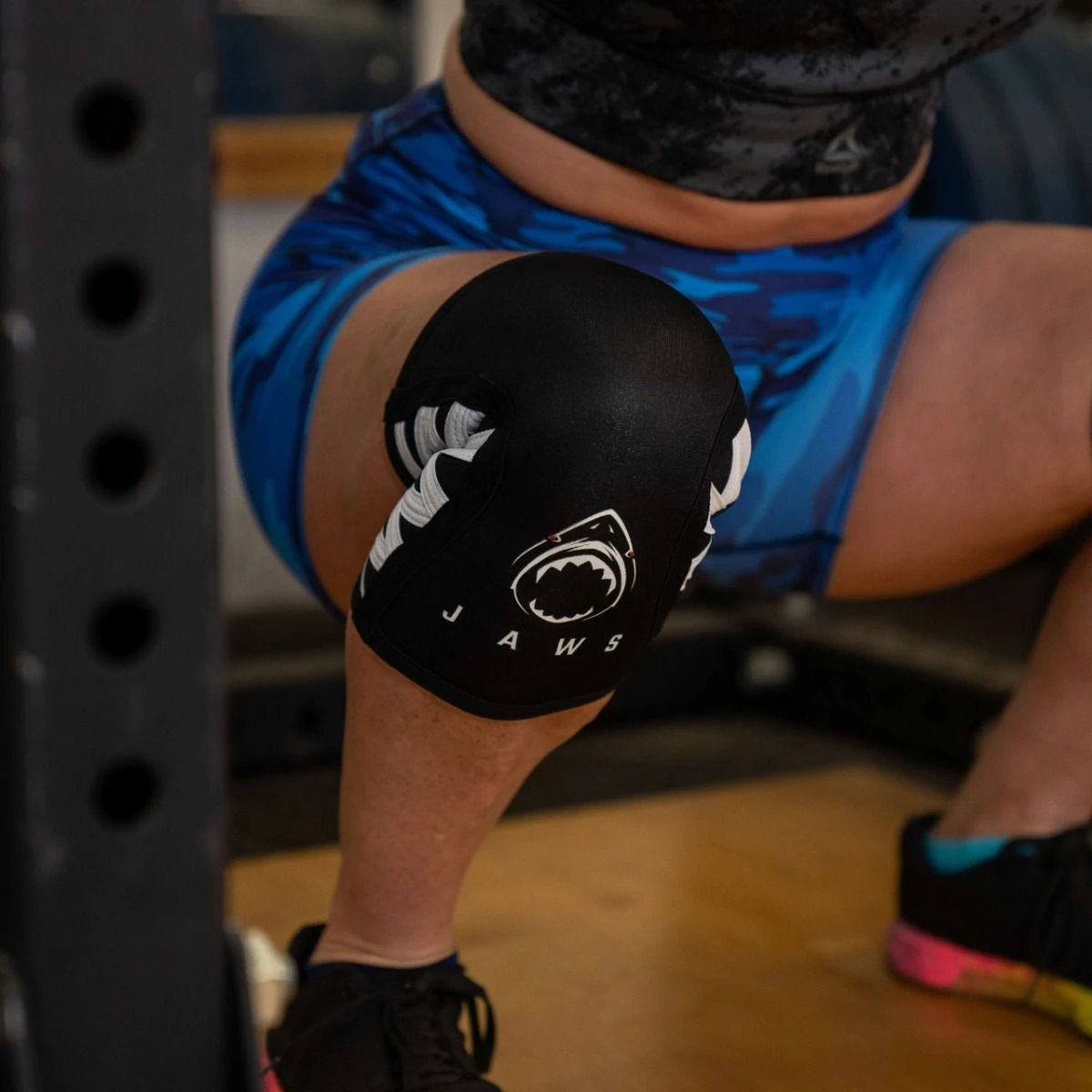
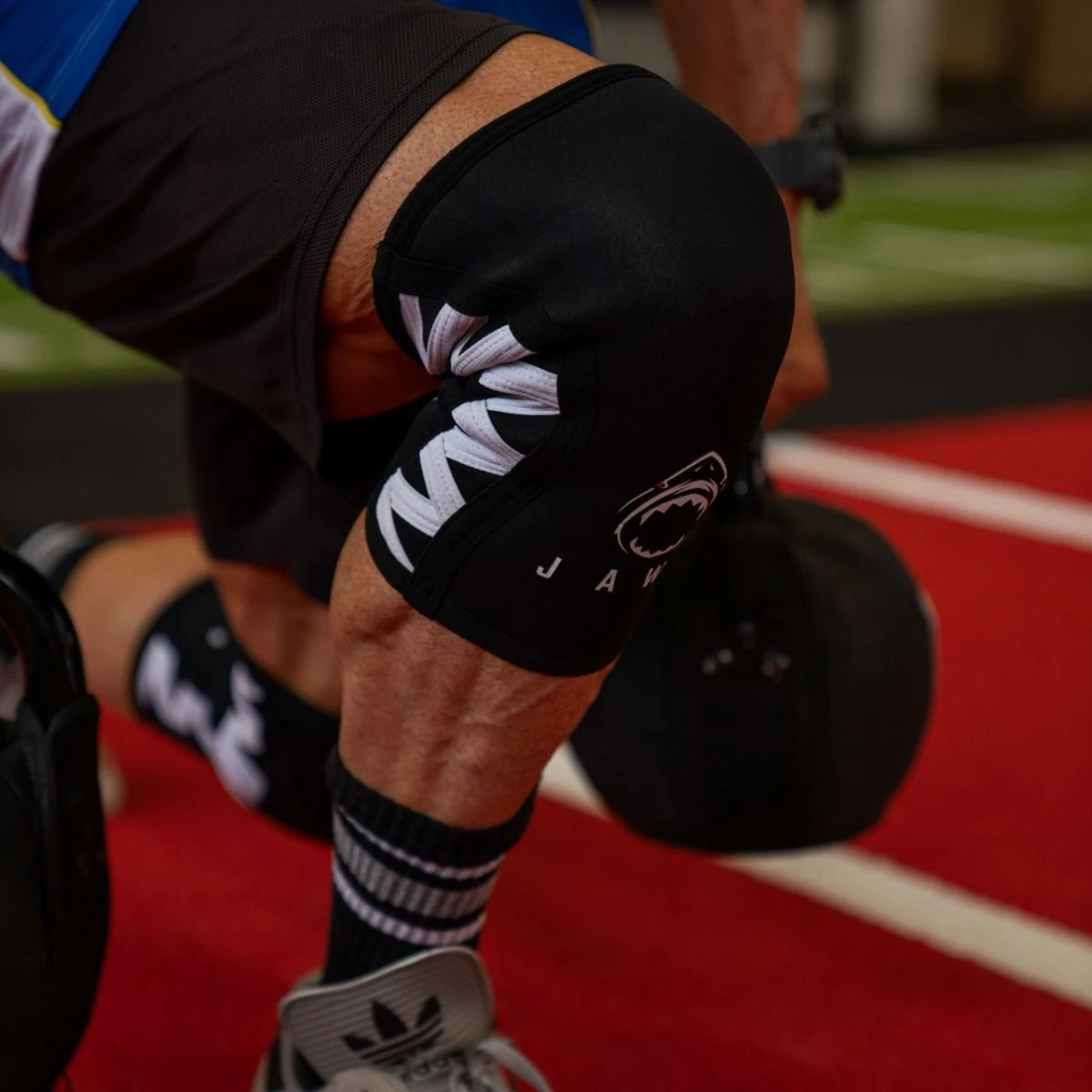
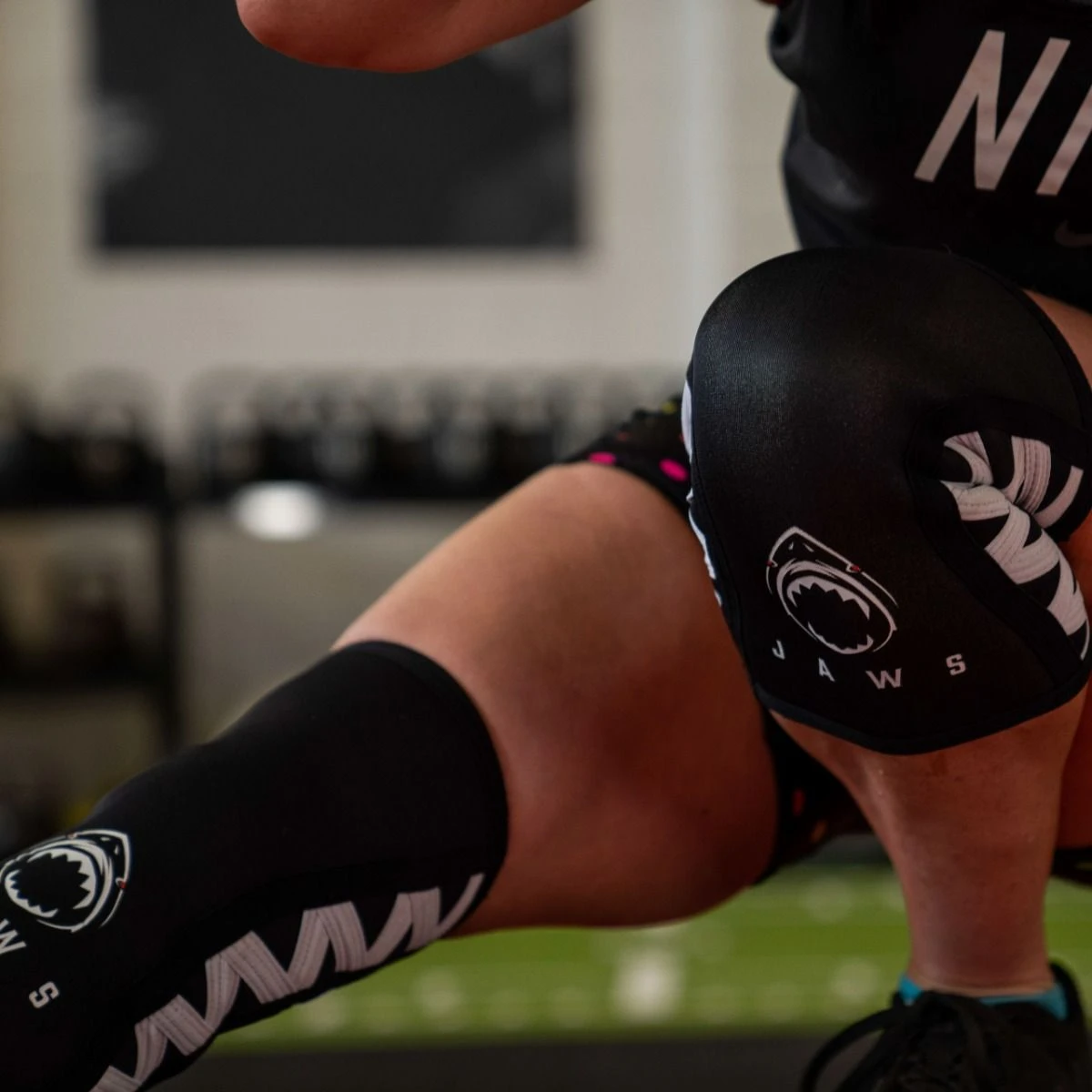
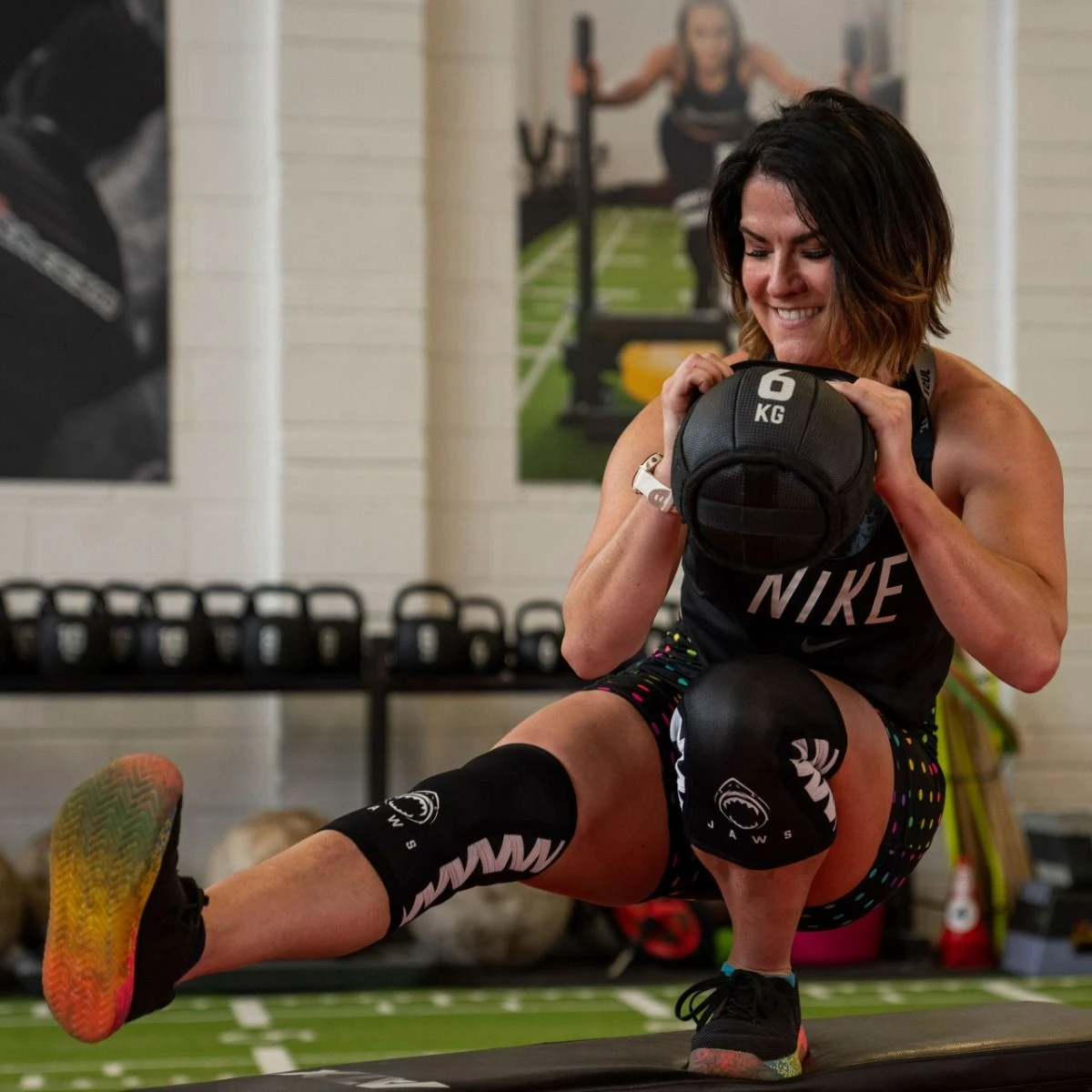
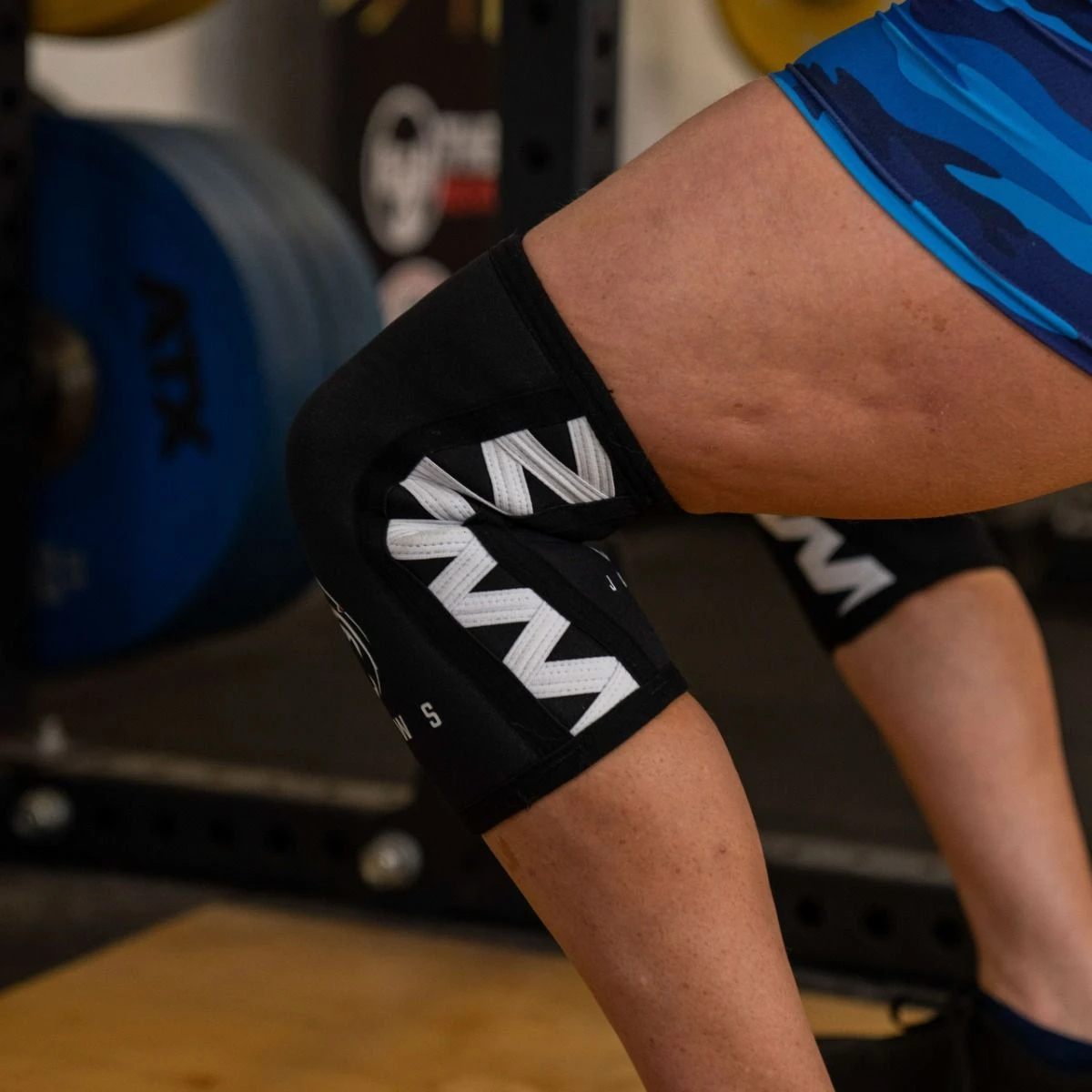
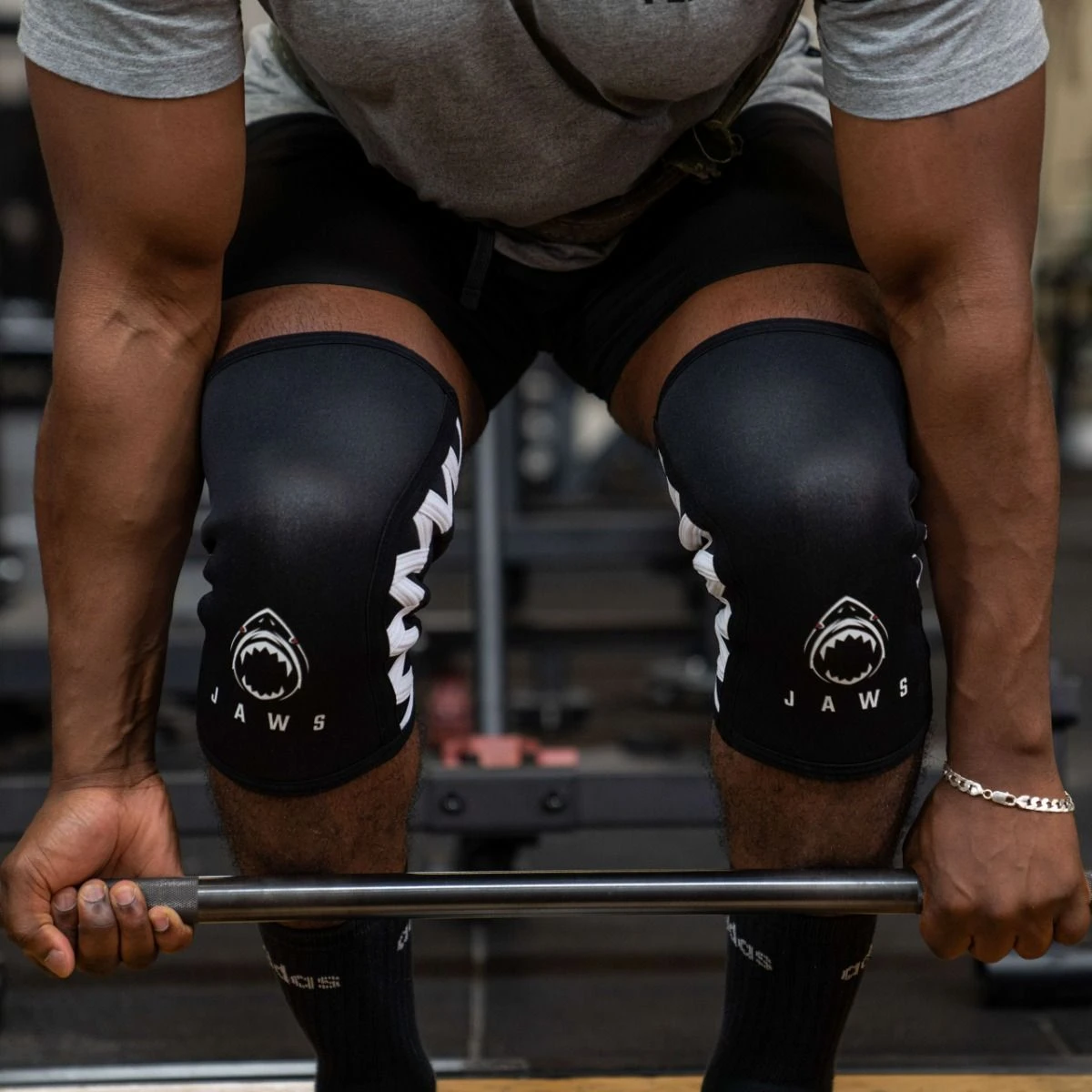
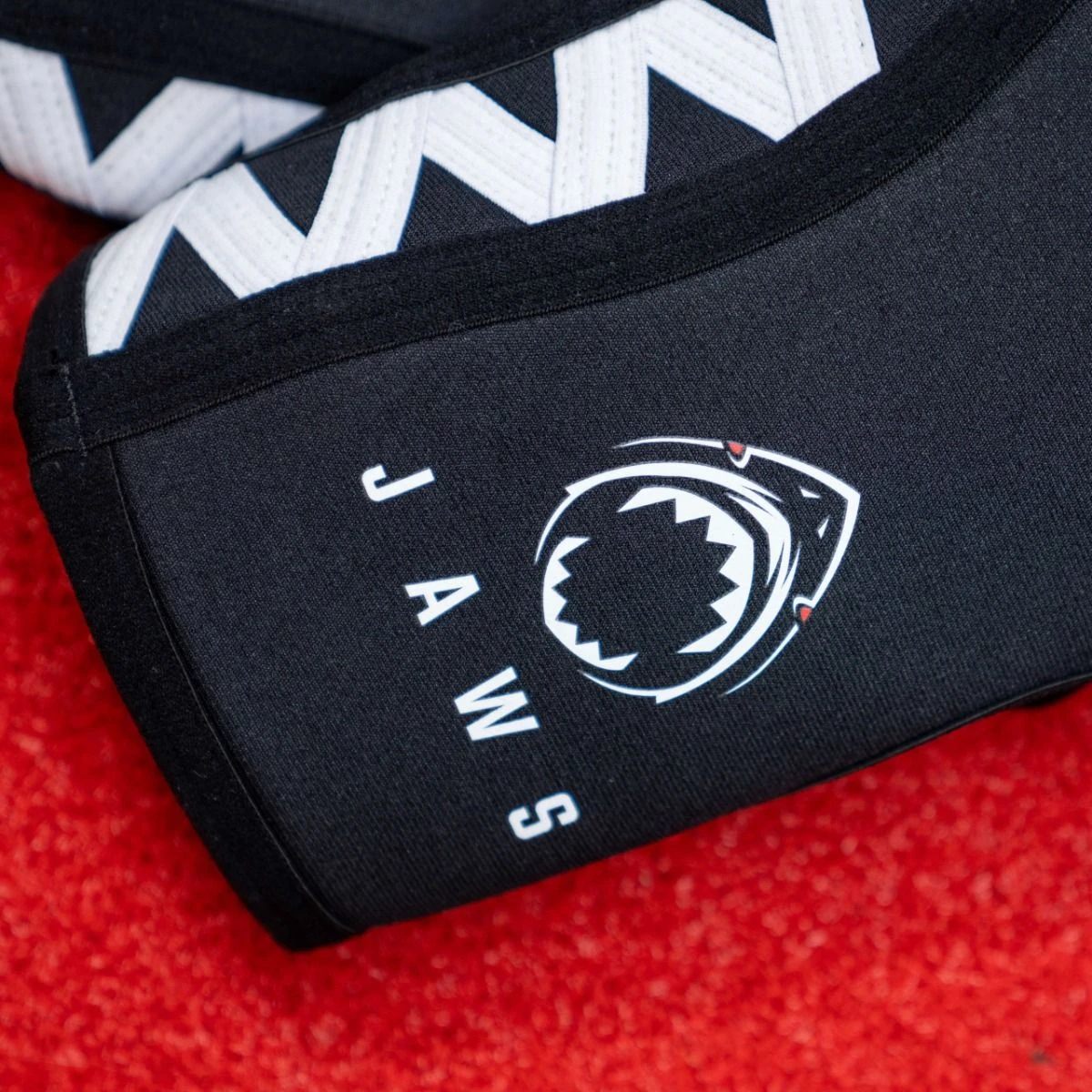

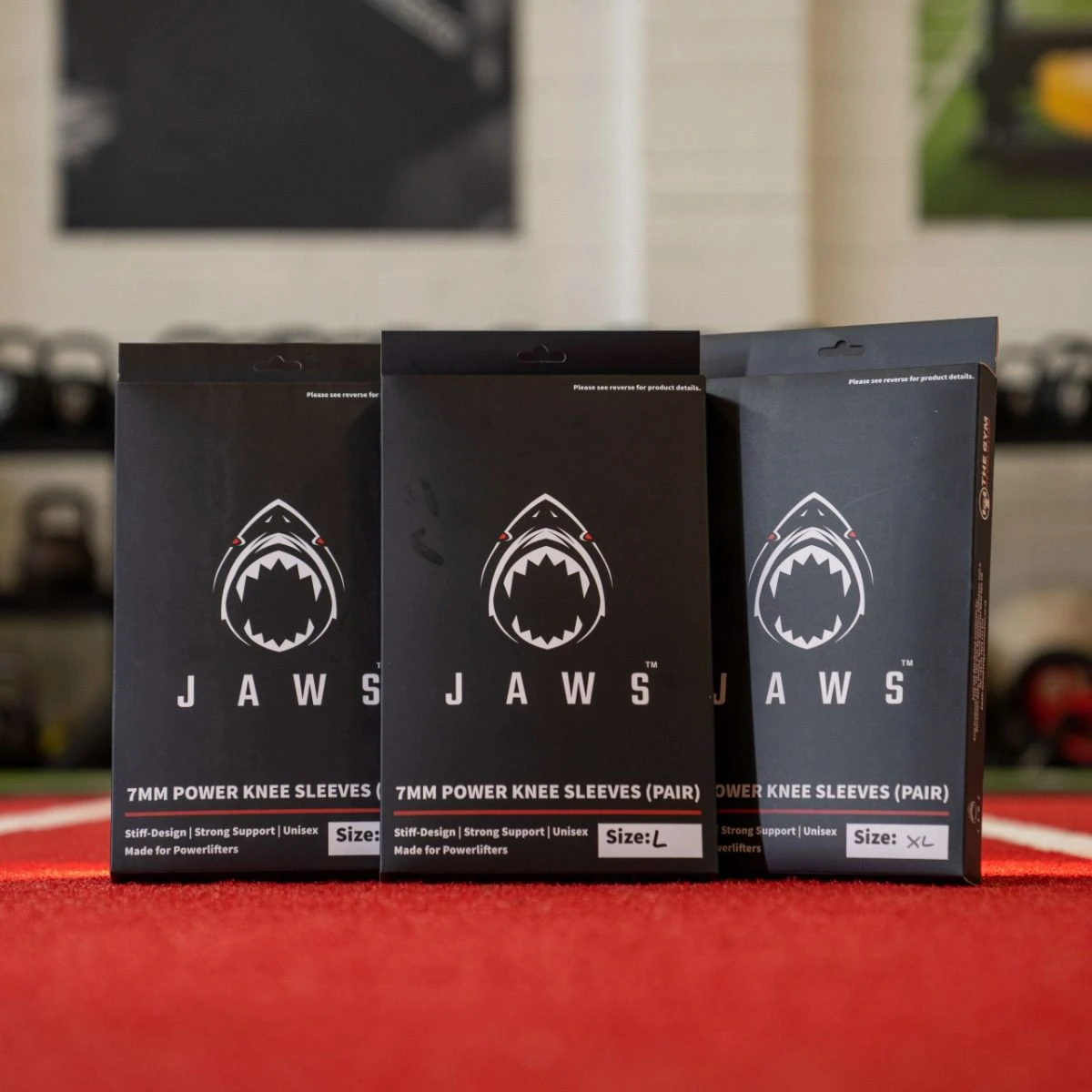
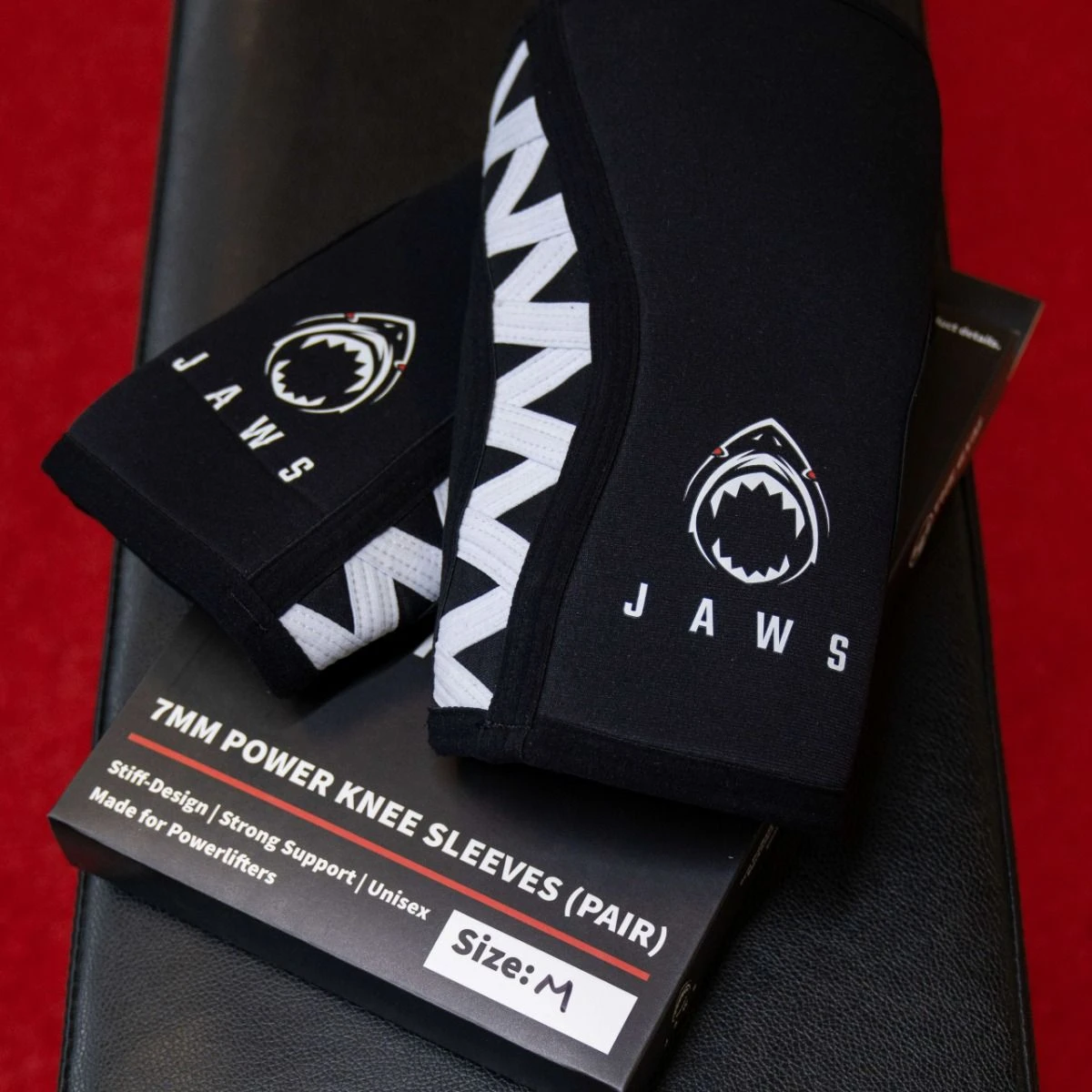
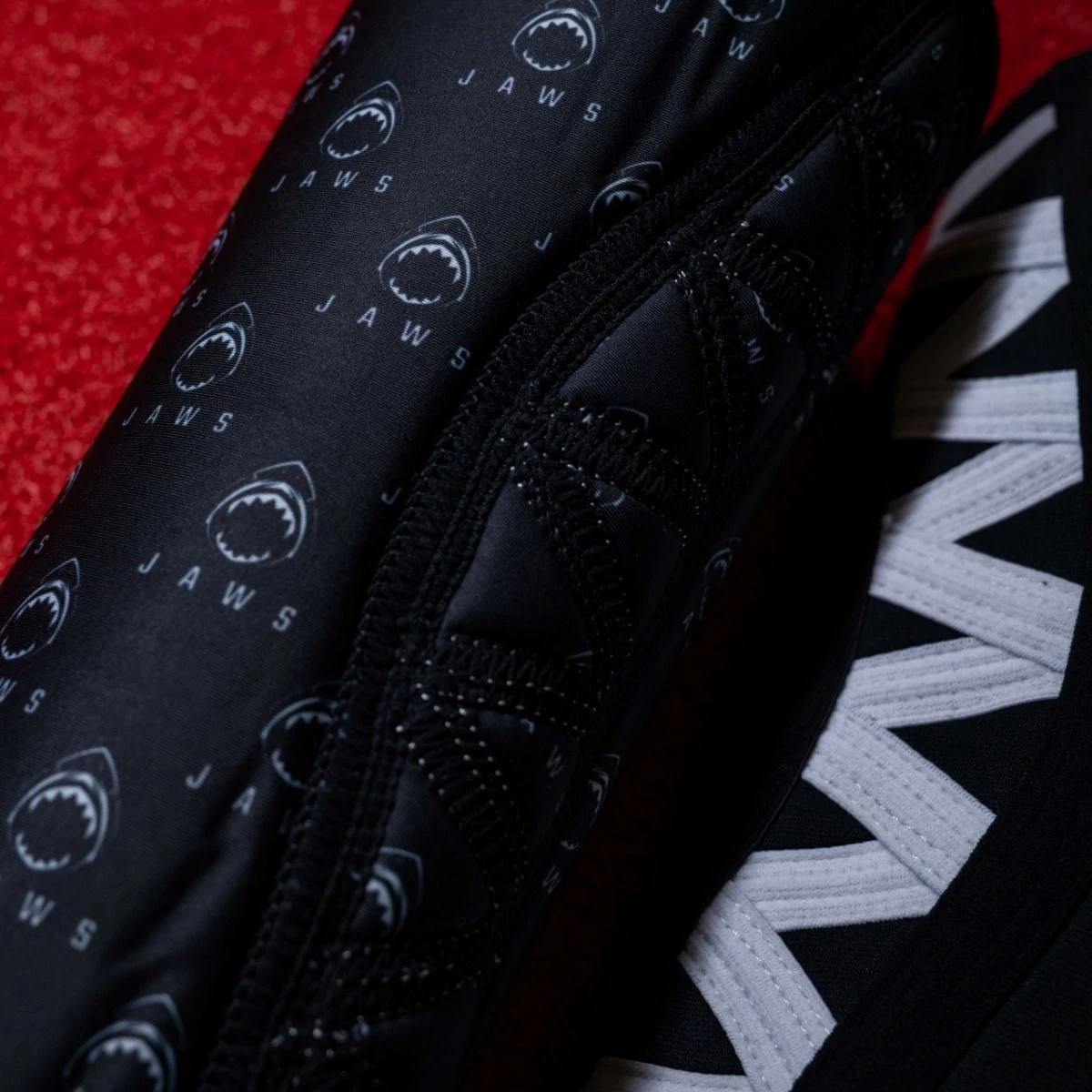
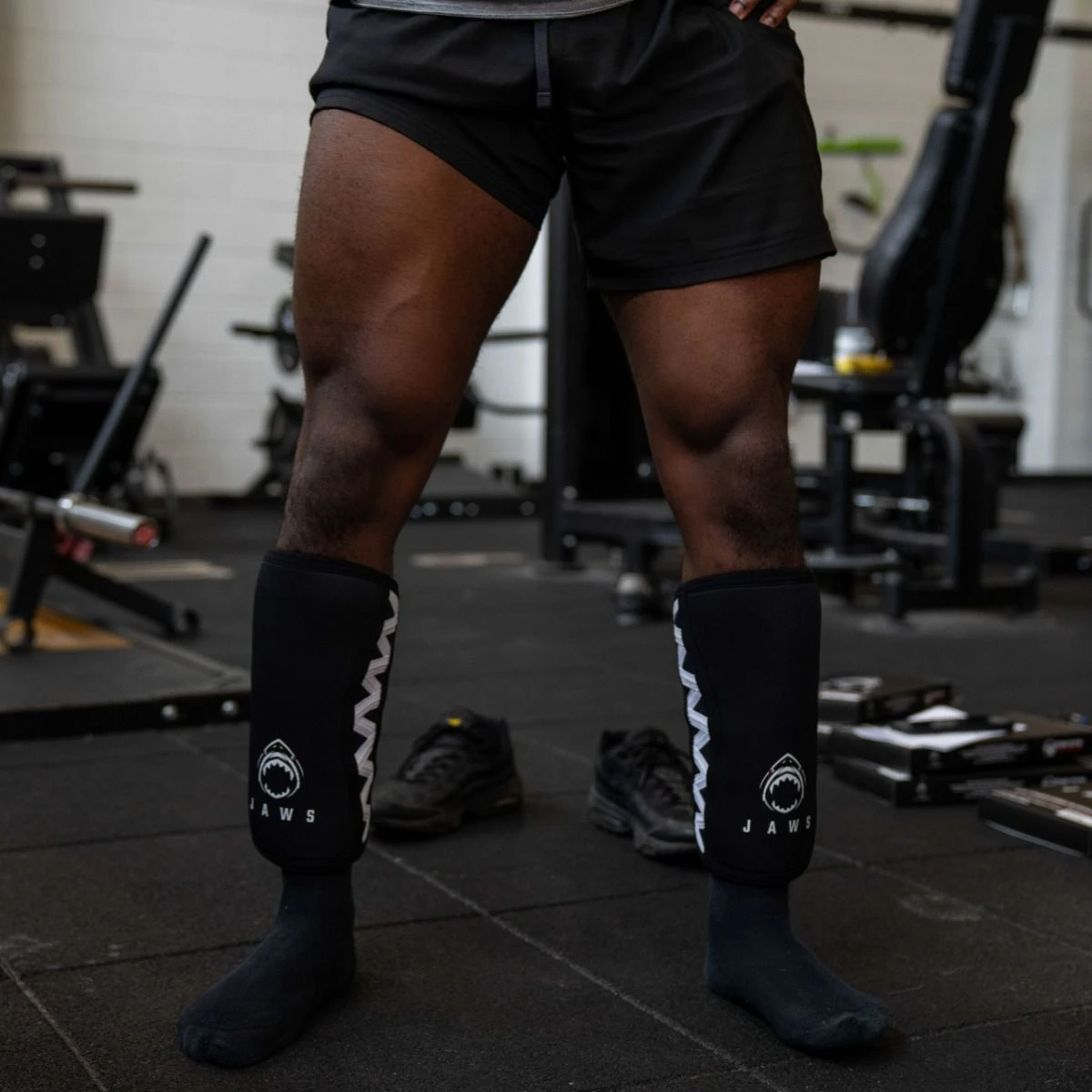

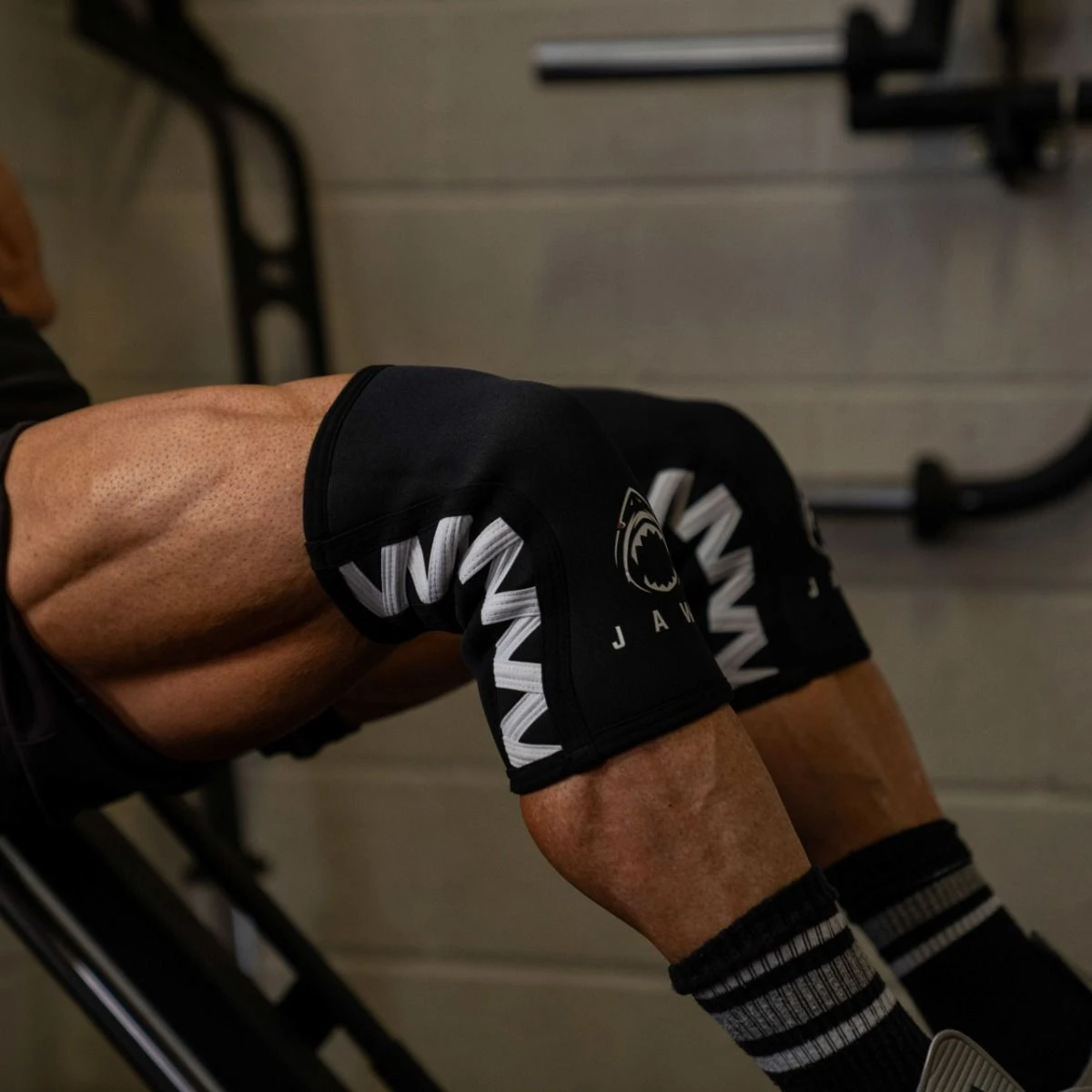
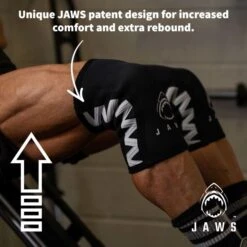
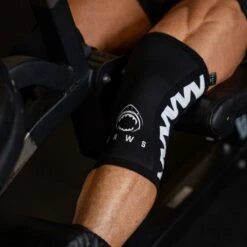
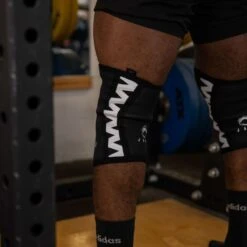
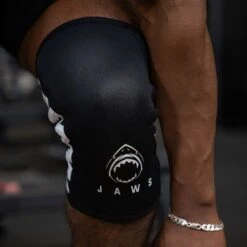

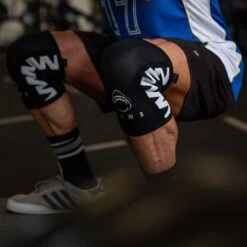
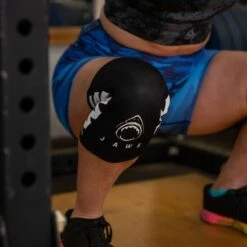
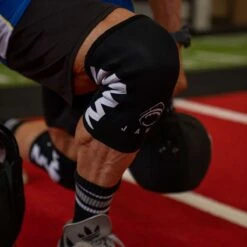

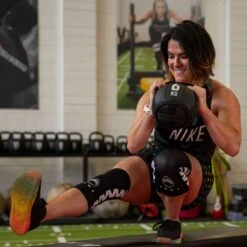
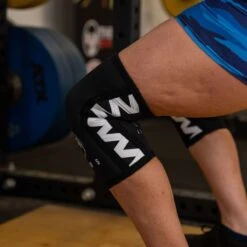

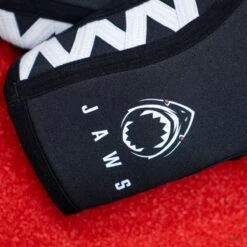

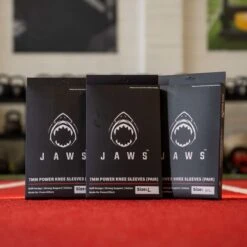
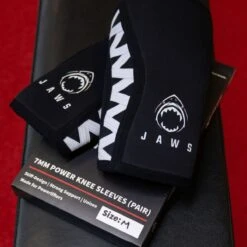
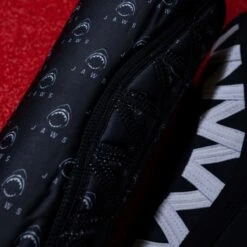
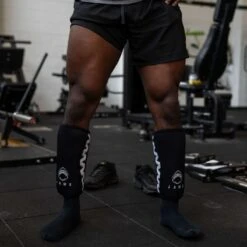
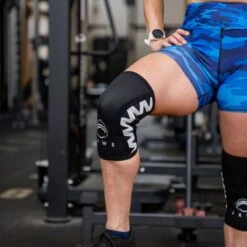

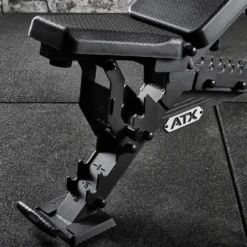
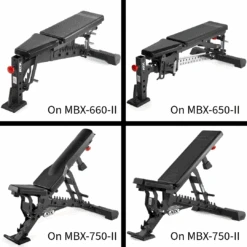
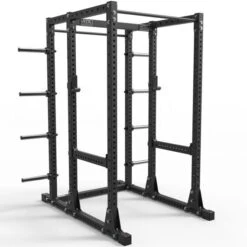
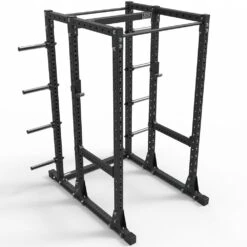
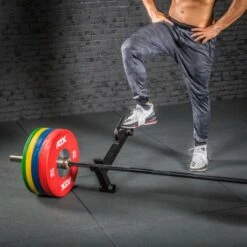
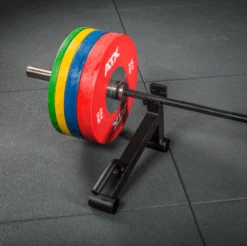
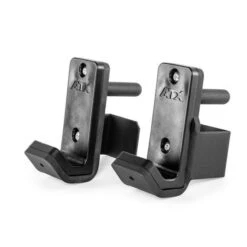
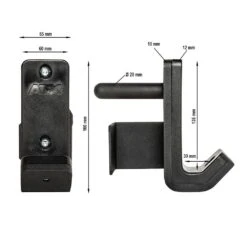
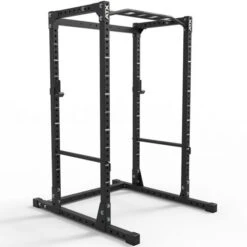
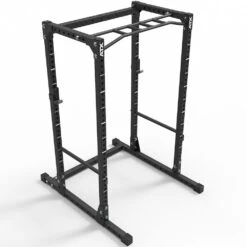
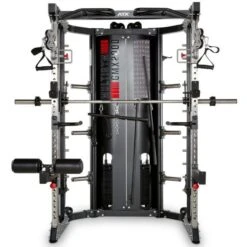
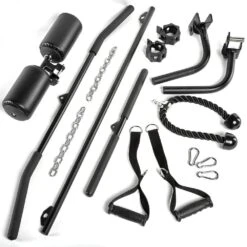
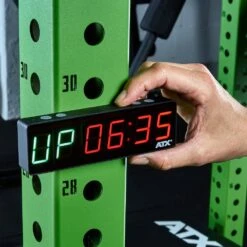
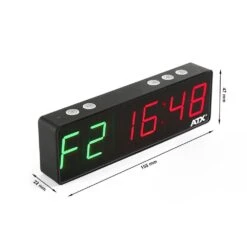
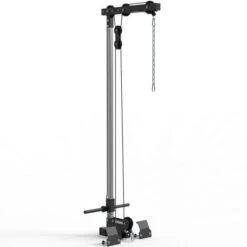
Reviews
There are no reviews yet.